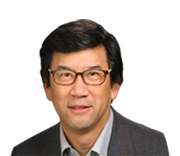Harnessing a patient’s own immune system to attack and defeat cancer may be one of the most promising cancer therapies.
Now a physician-scientist at the University of Texas MD Anderson Cancer Center is using immune therapies he developed for fighting melanoma to treat solid-tumor cancers, like pancreatic, lung, and colon cancers. Dr. Cassian Yee, M.D., was recruited from the Fred Hutchinson Cancer Research Center in Seattle with the help of a CPRIT Recruitment of Established Investigator Award. Dr. Yee currently is a Professor in the Department of Melanoma Medical Oncology and Department of Immunology Center and Director of the Solid Tumor Cell Therapy Program.
Recently, scientists have shown that unblocking or redirecting immune cells can turn them into potent weapons that make some types of cancer evaporate.
The technique Dr. Yee is developing—called endogenous T-cell (ETC) therapy—was originally pioneered in his lab to treat melanoma. A type of adoptive T-cell therapy, ETC involves isolating normal white blood cells—killer T cells—from a patient’s own blood and finding the rare ones that have the ability to recognize and attack the cancer cells.
Unlike genetic-engineering approaches, like CAR-T cell therapy, Dr. Yee is extracting a patient’s own naturally occurring T cells and amplifying their ability to kill cancer. In the lab, these cancer-fighting cells are specially treated to make them long lasting, multiplied into much larger numbers, and infused back into the patient.
“Even as recently as six or seven years ago, this type of therapy was not recognized widely as being feasible,” Dr. Yee says, “but we’ve already seen that it has influenced the standard of care for leukemia, and I want to expand that to as many solid tumors as possible.”
Dr. Yee’s hope is to begin treating solid-tumor cancers that are far more lethal—like pancreatic and ovarian cancers—or far more widespread, like breast, colorectal, and lung cancers.
After the T cells are re-infused, the patient and doctor begin a waiting game. “Unlike liquid tumors, where you may see a response very quickly,” Dr. Yee says, “this can take weeks to months to see the overall best response.” But usually the tumor stabilizes and starts to decrease during this time, without any additional therapy. In the best scenario, after 8 or 9 months the tumor is gone. This therapy even works in metastasized disease.
Dr. Yee says that optimally, this therapy could be used in combination with drugs called immune-checkpoint inhibitors. Many cancers evade detection and destruction by T cells by emitting a substance that essentially turns T cells off. Immune-checkpoint inhibitors are drugs or antibodies that bind to T cells and lock them in the “on” position. Combined with an army of cancer-specific T cells this could be a potent weapon against cancer. His work converges multidisciplinary approaches in bioengineering, metabolism, molecular immunology, and cellular biology to develop effective immunotherapy strategies and adoptive cellular therapy, in particular as a treatment modality for patients with malignant diseases.
Dr. Yee has started enrolling patients in a clinical trial of ETC immune therapy for metastatic pancreatic, colon, esophageal, gastric, and bile duct cancers that have failed conventional treatments.
“The patients who volunteer for these clinical trials are among the most courageous people that I know,” Yee says. “They volunteer for something that we don’t know will even benefit them. And for that I’m grateful, because without clinical trails we can’t move forward, no matter how much money we invest.”
In 2015, CPRIT invested $19.7 million with a German company, Immatics Biotechnologies, to further develop and potentially commercialize Yee’s immune therapy along with immune therapies pioneered by other MD Anderson immunologists.
Dr. Yee received his medical degree from the University of Manitoba, in Canada, and was a professor of medical oncology at the University of Washington and researcher at Fred Hutchinson from 1998 to 2012.
Read Less

